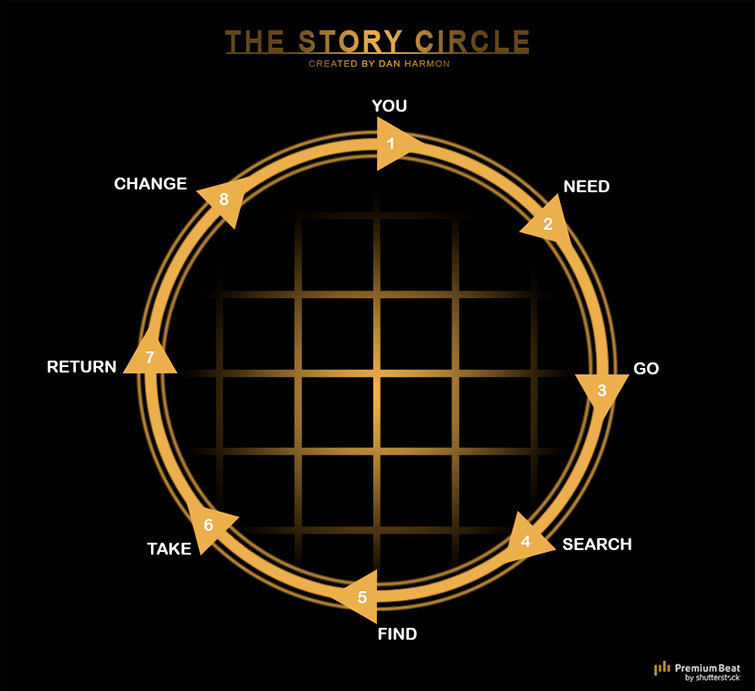If you have a dream to make movie magic and write your own screenplay, just watching a few Tarantino or Spielberg films probably won’t tell you the most important characteristics of writing a screenplay.
There are many important aspects of writing a screenplay, so let’s start with dialogue. No one would want to waste so much time thinking of cinematography and lighting to actually end up with a pile of bad dialogue. If you’re hoping to put your screenplay in someone else’s hands, the worst case scenario is that no one pays any attention. If you put your screenplay into the hands of someone else, you would not want a movie that is very well edited but a movie that no one can bare to listen to. Writing drafts is a great way to start to get dialogue flowing. After writing a first draft you work on mistakes and eventually your second, third and fourth drafts will really combine and form your vision.
David Harmon’s Story Circle is a great example of how to piece a story together

A great thing to do in a first draft is to cram everything in at once, the more you do this the more you realise how quality over quantity is important and can make your screenplay so much better. Think of your dialogue as part of the scene painting. There will be contextual elements of the diegetic world that you can rely on to communicate information, rather than info-dumping it in boring lectures from your characters. Conversations, like characters, don’t exist in vacuums, so think of your setting as as additional speaking role — albeit one that likes to play charades or use props instead of actually speaking.
Subtext is what makes dialogue truly interesting, and the best approach to working with subtext is to write your script twice—at least in the beginning. As you gain experience weaving subtext into your dialogue, it’ll begin to come more naturally, and you can introduce it as you go. When you’re still mastering the skill, however, it can be difficult to organically introduce subtext to lines of dialogue when you haven’t even written the full script, and therefore don’t know all of the emotional and narrative reveals that will follow your dialogue scenes.
![Poll: Joker cameo in 'The Dark Knight Rises'? [Update: Warner Bros. responds] | Batman News](https://i0.wp.com/batman-news.com/wp-content/uploads/2010/11/dk0037zx6p.jpg?fit=670%2C386&quality=80&strip=info&ssl=1)
To conclude, we hope this is a helpful tool on your way to moviemaking magic and we hope it comes to great success !